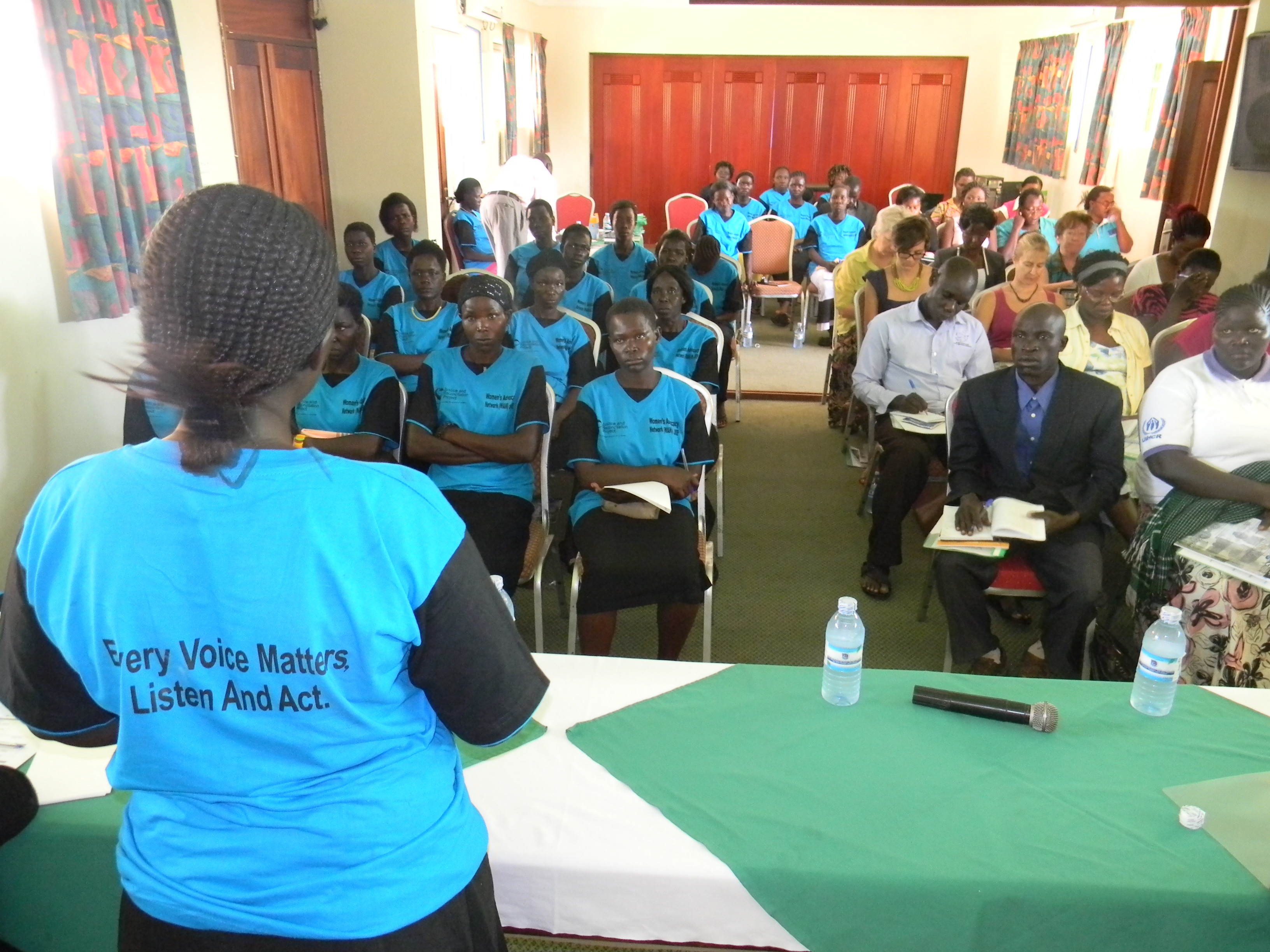One year after the official launch of the Women’s Advocacy Network (WAN), the Justice and Reconciliation Project hosted a stakeholders’ dialogue at Churchill Courts in Gulu to celebrate the first anniversary of the grassroots advocacy initiative and to further highlight the issues that continue to face war-affected women in northern Uganda. Invited guests included representatives of local government, civil society members, the media and members of WAN.
Six representatives of the Network held a panel discussion on their personal experiences as well as the challenges that form the basis of the advocacy points that WAN seeks to address. In particular, they emphasised the experiences of children born in captivity, education, health issues, land inheritance, inadequate amnesty packages, as well need for the creation of more income generating activities that will help to support women and children affected by the war were. They also made a call for more outreaches to be made at community level to sensitise community members on the acceptance of women and children that have returned from captivity.
One representative also discussed the importance of apology. For community members to reconcile and to come to terms with the past, a simple apology by political leaders and former rebel leaders would go a long way, she said, since after all, “we are Acholi and we are Ugandans.”
The event also served to launch Adyebo: The Wild Plant – a book which documents the experiences of war-affected women during and after the conflict in northern Uganda up the formation of the WAN. Download the book here (pdf).
About WAN
WAN brings together war affected women in a forum where they come together to advocate for justice, acknowledgement and accountability for gender based violations inflicted upon them during the war in northern Uganda.
